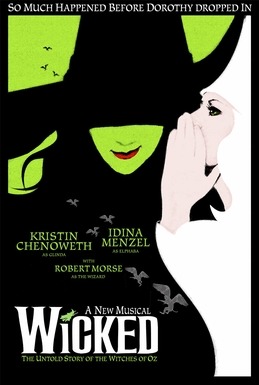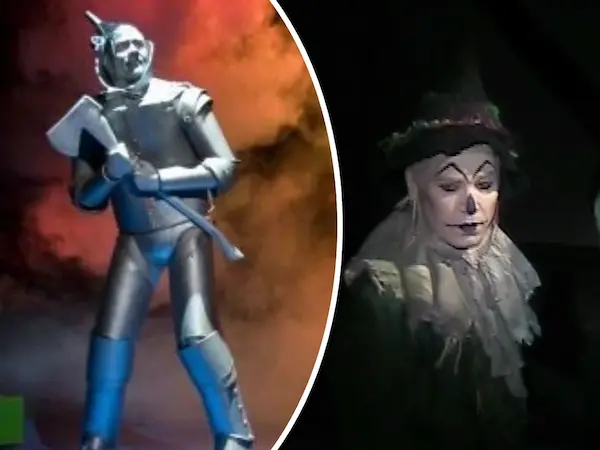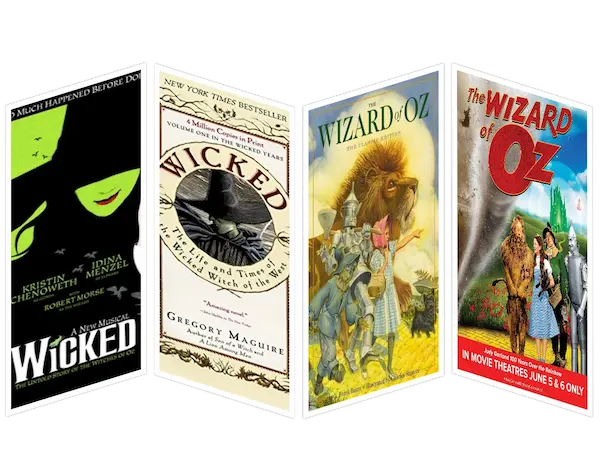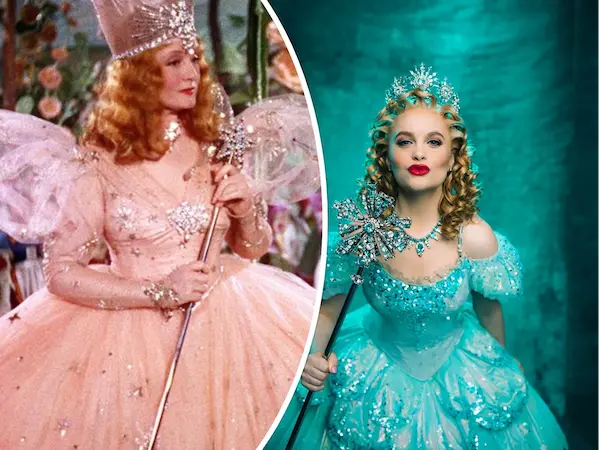Wicked the musical is a play from a book based on a movie musical based on a book.
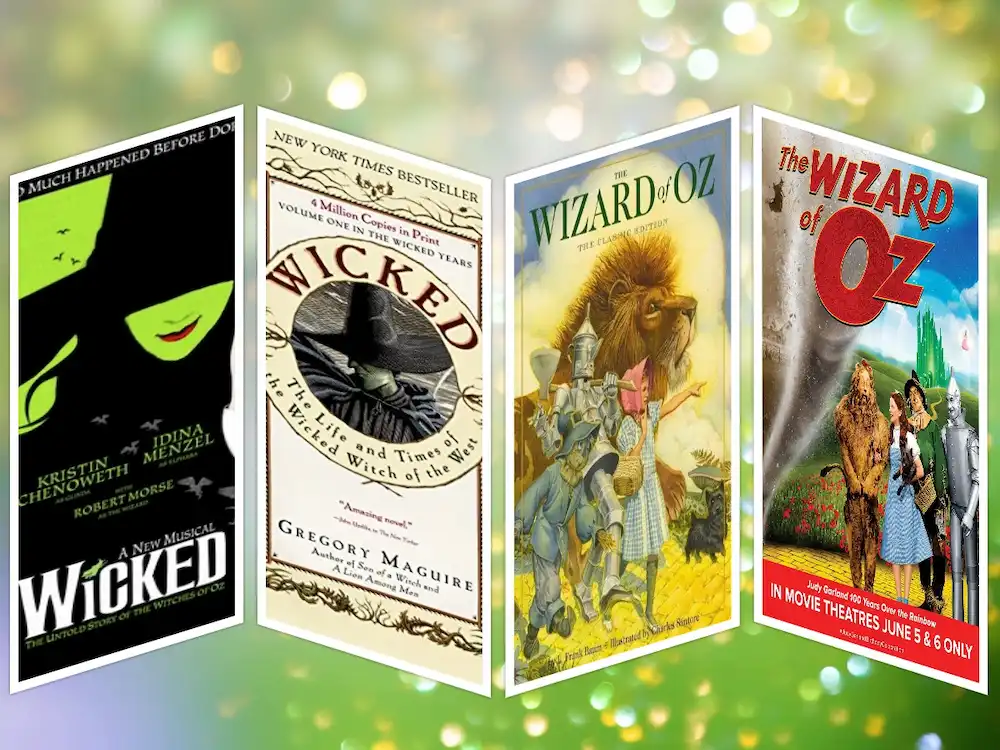
In This LitStack Review:
An Exciting Work Of Fan-Fiction
Wicked the musical is a work of fan-fiction. It’s a take-off of the original The Wizard of Oz by L. Frank Baum. It is a musical play from a book based on a movie musical that was based on a book. The origins of Wicked the musical don’t detract from the show’s excellent entertainment values, but being faithful to the origins makes plotting of the second half more difficult.
The Origins of Wicked
For those unaware, Wicked the musical is based on Gregory MacGuire’s novel Wicked, a retelling of The Wizard of Oz story incorporating elements from the original Baum books and the 1939 movie.
The first act of the musical Wicked is the ‘untold’ story of Elphaba, the Wicked Witch of the West, a marginalized and misunderstood girl who finds a friend in Galinda and finally accepts who she is, no matter what others think, ending on the brilliant song, “Fear of Flying,” which was echoed in Idina Menzel’s performance of “Let It Go” in the movie Frozen.
The second act is not quite as transformative as the first act, though it has many wonderful moments, and that’s where the need to fit its narrative around the original sources comes into play. It shows the limits of retconning from an original work.
Revealing a Deeper Truth
The entire story is told from either Elphaba’s or Galinda’s point of view, revealing to the audience that nearly everything we thought we knew about them and their relationship was untrue. Elphaba was marginalized because of her emerald skin, and regarded as secondary to her sister, Nessa, for reasons that we don’t uncover later. Galinda is not the perfect good witch but someone who must learn compassion for others not like herself.
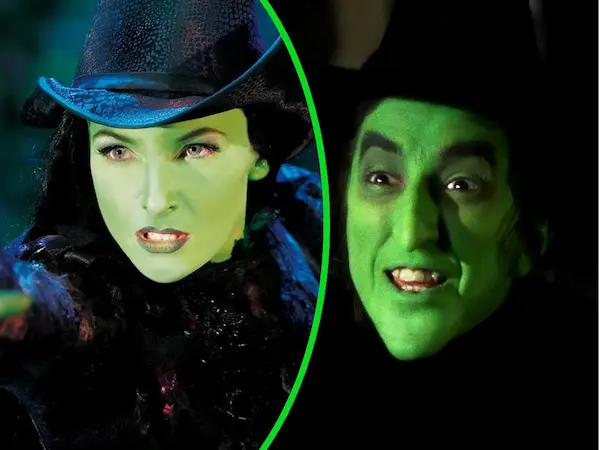
The second act of Wicked is almost entirely curled around the familiar story of The Wizard of Oz. The Scarecrow and the Tin Man are given an origin, there are behind-the-scenes views of Elphaba and Galinda’s (now Glinda) actions as the movie story unfolds, and there’s eventually a different ending than assumed for Elphaba.
Curling A New Tale Around An Old Tale
The reason the second act works is that so many generations are familiar with the world of The Wizard of Oz. It’s in our collective memory. But curling a new tale around an old one has limitations because the original story still has to be honored. The question in the second act becomes “how will they fit this around what we know happens” instead of “what’s going to happen next?” And that alters the immersion of the audience, making them more aware that they’re watching a story instead of living the story.
We know Dorothy will kill the Wicked Witch of the East (Nessa) by landing a house on her. We know Dorothy makes friends with the Scarecrow, the Tin Man, and the Cowardly Lion, we know the Flying Monkeys will attack Dorothy and her friends, and, most of all, we know Dorothy tosses water on the Wicked Witch of the West and melts her.
The Suspense Is Not What Will Happen. The Suspense Is How Will This Happen?
The narrative drive of the second act comes from “wait, if these things happen, how can anything turn out well for the Elphaba we came to adore during the first act.” Without spoiling things, I can tell you that the solutions are quite fun. There’s nothing in the second act that’s as transformative as that wonderful first act that takes the idea of “what if the Wicked Witch of the West is the true hero of The Wizard of Oz?” and makes it work. The first act uses the original work as a jumping-off point, whereas the second act takes the method of peeling back a curtain to events we’ve already seen unfold.
This is the narrative limit of retcons, aka retroactive continuity.
Retconning Is Short For Retroactive Continuity
Retcon is a term I first heard in the comic book community, aka the idea that “everything you thought you knew about a character is wrong! Here’s the real story!” There’s a lot to be gained by updating stories to modern times because these new versions provide insight into the way society has changed. They can work wonders in updating characters, such as in Frank Miller and David Mazzuchelli’s legendary Batman: Year One. A more obscure DC example is Sandman Mystery Theatre, which takes the original Golden Age Sandman (not the Neil Gaiman character) and updates him as a noir hero.
But there’s also a lot to be lost when trying to find new ways to use existing characters. Take one of DC’s most infamous retcons: the origin of the second Black Canary. On the Earth containing DC’s original Golden Age heroes, Black Canary (Dinah Drake) survives a battle where her husband dies. In grief, she jumps to the Earth containing DC’s Silver Age and enters into a relationship with Green Arrow. Later, it’s revealed that Drake died too but her mind was transferred from her older body to the mindless body of her daughter who was held in literal limbo because of her unstable energy power. Black Canary became her own daughter. Yes, it’s as terrible as it sounds.
It was so terrible that when DC rewrote its continuity years later, Dinah Drake was reinserted as the Black Canary who passed on her mantle to her living adult daughter, Dinah Laurel Lance, the Canary that appears in most mainstream media.
In another infamous example, the Spider-Clone saga from Marvel, it was revealed that the Peter Parker that readers had been following in recent years was actually his clone, Ben Reilly. That was reviled enough that it, too, was retconned away too.
Nostalgia Intervenes
That brings us to Wicked the musical. The first act is a brilliant retcon, as it doesn’t try to wrap the narrative around something else but takes one idea and expands it. I love that first act, it changes our view of what is evil and what is merely misunderstood and reveals that what appears to be good (bright Galinda) and what appears to be bad (a green Elphaba) is far more complicated.
That story continues in the second act but it feels like instead of continuing the story told in act one, it loses some of its’ steam, even if Elphaba is given a happy ending of sorts.
That’s the limits of fan-fiction. By retelling a story that we all know, it can flip our mindset and understanding to another level. But it can also become nostalgia instead of a true story of its own. Wicked the musical is both these things.
~Corrina Lawson
Other LitStack Resources
Be sure and check out other LitStack Reviews that provide in-depth critical examination of books you should read, then hop over to other exciting and eclectic LitStack articles written by Corrina Lawson.
As a Bookshop affiliate, LitStack may earn a commission at no cost to you when you purchase products through our affiliate links.

